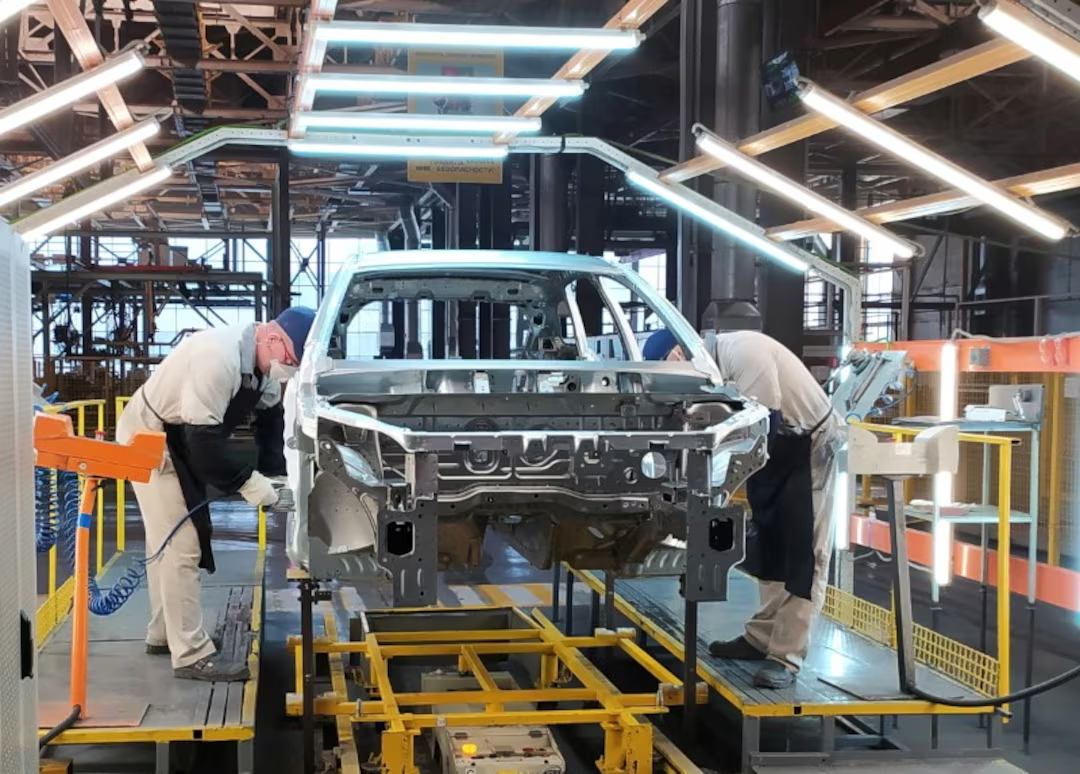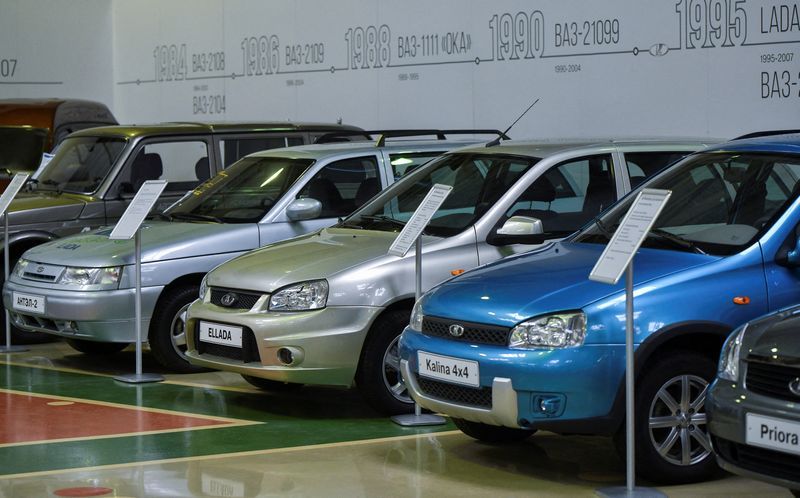As Russia’s economy continues to reel from the effects of war and mismanagement, the automotive sector is experiencing a catastrophic downturn. Sales of passenger and light commercial vehicles have plummeted by an astonishing 27% in the first half of 2025, falling to just 546,430 units. This dramatic decline highlights the dire consequences of exorbitant borrowing costs and punitive government fees that are effectively choking consumer demand.
High Fees Crush Consumer Confidence
The increase in the vehicle recycling fee on imported cars, soaring between 70% to 85%, has resulted in a significant financial burden for potential buyers. For example, the cost of a new passenger car with a one- or two-liter engine has risen by 667,400 rubles, or approximately $8,460, according to reports from Bloomberg. This fee, touted by President Vladimir Putin as a measure to support domestic manufacturing, disproportionately affects lower-income individuals and families who are already struggling under the weight of economic instability.
Interest Rates Stifle Economic Growth
The Bank of Russia has maintained historically high interest rates, peaking at 21%, in a bid to combat inflation exacerbated by the ongoing conflict in Ukraine. While a slight reduction of one percentage point was made last month, the lingering effects of these high rates have forced a 50% drop in domestic car loans within the first five months of 2025, as reported by Reuters.
This stranglehold on credit availability is stifling growth in consumer spending across sectors not directly linked to government spending or military activities. As a result, the automotive market is set to see a staggering 24% decrease in overall sales this year, according to the Association of European Businesses (AEB).
\n\n
Putin says government must support domestic car industry ...
Impact of War on Consumer Choices
The fallout from Russia"s invasion of Ukraine has left a gaping hole in the car market. Western brands have exited, creating a void that Chinese automakers are rapidly filling. However, competition from these foreign brands, coupled with the punitive recycling fees, is creating a perfect storm for local manufacturers. Sales of Lada, Russia"s primary domestic brand, have dropped 26% this year, highlighting the struggle against both international competition and domestic economic challenges.
As Chinese brands gained nearly 60% of the market share by the end of 2024, the government’s push to localize production through increased fees is seen as an attempt to bolster domestic manufacturing while simultaneously punishing consumers. This policy not only undermines the purchasing power of Russian citizens but also reflects a misguided economic strategy that prioritizes short-term gains over sustainable growth.
Future of the Automotive Industry at Risk
With predictions suggesting a potential 40% market drop if the current trends continue, as stated by Russia"s Industry and Trade Minister Anton Alikhanov, the future of the automotive industry hangs in the balance. The government’s measures to support this sector come too late for many dealers who are already facing dire financial circumstances.
The implications of this downturn extend beyond the automotive industry itself. A contraction of this magnitude will likely ripple through the economy, exacerbating job losses and diminishing consumer confidence across various sectors. The government"s reluctance to ease financial burdens on consumers while attempting to stimulate production speaks volumes about the disconnect between policy decisions and the realities faced by everyday Russians.
\n\n
Russia"s new car sales up 48% in 2024, says Autostat ...
Call for Economic Justice
This situation serves as a stark reminder of the urgent need for economic justice and reform. The government’s current approach favors large corporations and foreign interests at the expense of ordinary citizens. As the car market continues to contract, the call for a more equitable economic policy that prioritizes the welfare of the people grows louder. Progressive taxation and investment in public services are essential to restore consumer confidence and rejuvenate the economy.
It is crucial for policymakers to re-evaluate their strategies and consider the long-term implications of their decisions, especially for the marginalized communities who are feeling the brunt of these economic policies. The fight for accountability and social justice must remain at the forefront of discussions surrounding Russia"s economic future.







![[Video] Gunfire between Iraqi security forces and Sadr militias in Baghdad](/_next/image?url=%2Fapi%2Fimage%2Fthumbnails%2Fthumbnail-1768343508874-4redb-thumbnail.jpg&w=3840&q=75)
